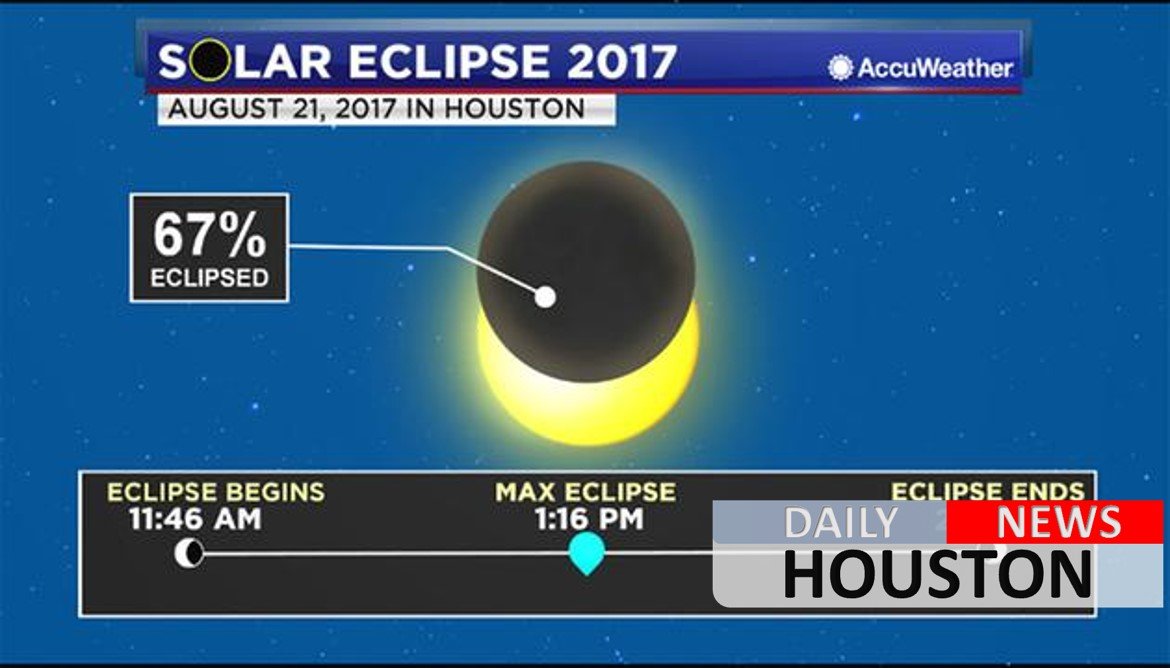The Great American Eclipse is coming, and you have just a month left to prepare.
On Monday, August 21, the sun will cast the moon’s shadow over Earth, and it will be visible in full or in part from all of the continental U.S. for the first time since 1918! The path of totality, where the sun appears completely darkened by the moon for a few minutes, is only 70 miles wide, starting in Oregon and ending in South Carolina.
Meteorologist Travis Herzog says at peak eclipse in Houston, the sun will be 67% covered by the moon. That means it will still be just about as bright as any other day, but if the weather cooperates, you will see a black disk cover over half the sun. Travis says your two options to safely view this eclipse without damaging your eyes are to see it indirectly through a projection onto the ground or to view it through a device with an appropriate solar filter.
Regular sunglasses will not protect your eyes from the damaging sun rays, and NASA says “to date five manufacturers have certified that their eclipse glasses and handheld solar viewers meet the ISO 12312-2 international standard for such products: American Paper Optics, Baader Planetarium (AstroSolar Silver/Gold film only), Rainbow Symphony, Thousand Oaks Optical and TSE 17.”
Join scientists and educators from the Lunar and Planetary Institute (LPI) at Levy Park and Freeman Library to witness this historical event!
Our ABC13 weather team will keep you informed of the atmospheric conditions expected during the solar eclipse as the date draws near.









